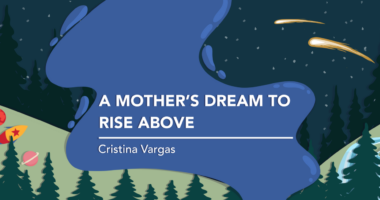When Is It OK to Quit Fighting Rare Disease?

(Courtesy of Laura King Edwards)
If she were still alive, my younger sister would have celebrated her 22nd birthday today. Instead, Taylor died from CLN1 disease (Batten disease) in September 2018, more than 12 years after her diagnosis.
Long before I said goodbye to my sister, I knew all of the work our charity, Taylor’s Tale, was doing to advance treatments wouldn’t help our namesake. After all, Taylor was born and, indeed, diagnosed at a time when the world still turned a blind eye to ultra-rare disorders like Batten disease.
“There’s nothing anyone can do to help her,” the doctors told my parents. “Take her home. Love her. Try to make happy memories.”
But, of course, simply loving Taylor was never enough for our family. We had to fight for her right to live, too.
It’s never been easy. Not in the beginning, when our naiveté fueled our unbridled hope for a better future and we told the world our Taylor would be different. Not in the middle years, when Batten disease stole my sister’s vision, voice, and mobility but couldn’t touch her spirit. Not in the painful last months, when her slender wrists and delicate hands became gnarled, her tiny body sometimes wracked with seizures.
It hasn’t been easy in the nearly two years since she broke free from her broken body, leaving my parents with an empty house, our entire family with empty hearts, and my newborn son with an aunt he’d never know. I’ll admit there have been days I’ve wanted to walk away from Batten disease and our protracted, tortured relationship. Hope became even more difficult to hold onto as, more recently, I’ve watched Taylor’s greatest legacy (a promising gene therapy treatment spearheaded by Taylor’s Tale and developed by Steven Gray, PhD) stall.
Here’s the thing about this race, though: It won’t ever really end. Not when the first patient is treated in a clinical trial. Not if and when a treatment for CLN1 disease gains approval from the U.S. Food and Drug Administration. And certainly not if I quit.
When you or someone you love has a rare disease — no matter how serious — it changes you forever. And if you quit? Decide you just can’t face it anymore? The race continues. You’re just watching from the sidelines instead of inching forward. Watching idly, which may inflict even more pain than pounding your own feet on the pavement to maybe, just maybe, make things better.
I lost my sister to an ugly disease. I’m still grieving. I’m tired, and not just because I have a toddler and a charity and a full-time job and a monthly column. I’ve helped raise a lot of money, though still not as much as I’d like. I’ve helped move mountains, though not quite as far as I’d like. I’ve loved someone rare so much it hurts, and I still couldn’t save her life.
Taylor’s Tale looks a little different than it did before my sister died, but we’re still furiously racing forward in her memory. We won’t let a failed first mission (save Taylor’s life) or our ultra-rare status, or even a pandemic get in our way.
Never quit. I’ve never written wiser words. I write this column on the heels of news released Monday: Precocious Taysha Gene Therapies, less than four months old but with $95 million in fresh cash and chief scientific advisor Steven Gray, has acquired the CLN1 disease program from Abeona Therapeutics. A clinical trial should begin next year.
I’m thrilled to see this potentially life-changing work back where it belongs, with Steve. I’m anxious for the families whose children stand to benefit. And today, on my late sister’s birthday, you’d better believe I’ll keep running.
***
Note: Batten Disease News is strictly a news and information website about the disease. It does not provide medical advice, diagnosis, or treatment. This content is not intended to be a substitute for professional medical advice, diagnosis, or treatment. Always seek the advice of your physician or other qualified health provider with any questions you may have regarding a medical condition. Never disregard professional medical advice or delay in seeking it because of something you have read on this website. The opinions expressed in this column are not those of Batten Disease News or its parent company, Bionews, and are intended to spark discussion about issues pertaining to Batten disease.






Leave a comment
Fill in the required fields to post. Your email address will not be published.